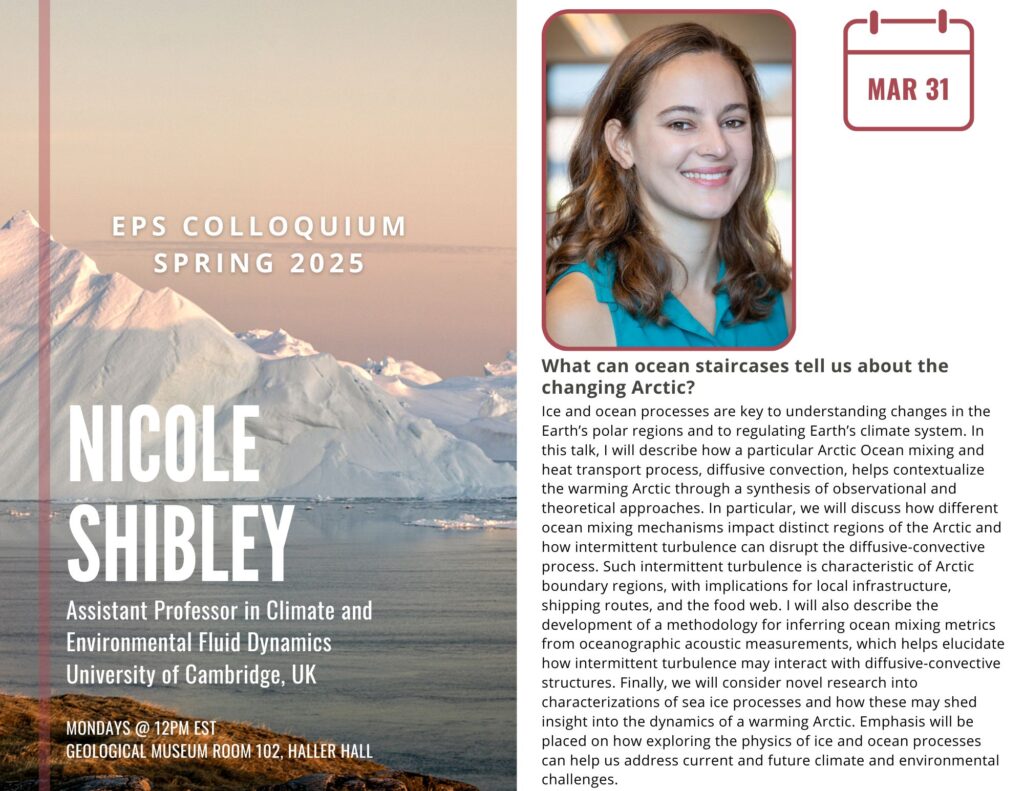EPS Colloquium – Nicole Shibley, University of Cambridge UK
What can ocean staircases tell us about the changing Arctic?
Ice and ocean processes are key to understanding changes in the Earth’s polar regions and to regulating Earth’s climate system. In this talk, I will describe how a particular Arctic Ocean mixing and heat transport process, diffusive convection, helps contextualize the warming Arctic through a synthesis of observational and theoretical approaches. In particular, we will discuss how different ocean mixing mechanisms impact distinct regions of the Arctic and how intermittent turbulence can disrupt the diffusive-convective process. Such intermittent turbulence is characteristic of Arctic boundary regions, with implications for local infrastructure, shipping routes, and the food web. I will also describe the development of a methodology for inferring ocean mixing metrics from oceanographic acoustic measurements, which helps elucidate how intermittent turbulence may interact with diffusive-convective structures. Finally, we will consider novel research into characterizations of sea ice processes and how these may shed insight into the dynamics of a warming Arctic. Emphasis will be placed on how exploring the physics of ice and ocean processes can help us address current and future climate and environmental challenges.
To be added to the EPS colloquium mailing list, please contact Caroline Carr at carolinecarr@fas.harvard.edu

Dr. Nicole Shibley is an Assistant Professor at the University of Cambridge in the Department of Applied Mathematics & Theoretical Physics, jointly with the Department of Earth Sciences. Previously a postdoctoral fellow and 2023-24 John Archibald Wheeler postdoctoral fellow at the Princeton Center for Theoretical Science, Nicole earned her Ph.D. in Earth and Planetary Sciences from Yale University, her M.Phil. in Geology and Geophysics from Yale University, her M.A.St. in Mathematics from the University of Cambridge, and her B.S. in Physics from Yale University. Her work has been supported by the American Physical Society Topical Group on the Physics of Climate Early Career Investigator Award, the Princeton Center for Theoretical Science Postdoctoral Fellowship, and the National Defense Science and Engineering Graduate Fellowship, among other honors.

